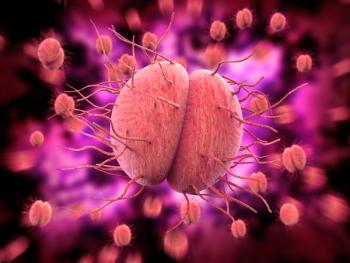
Efficacy of N. sativa-honey vs. clotrimazole for VVC
A study published in the journal Evidence-Based Complementary and Alternative Medicine found that both Nigella sativa (N. sativa) (black seed and black cumin)-honey vaginal cream and the antifungal medication clotrimazole significantly improve the symptoms of vulvovaginal candidiasis (VVC).
However, the authors noted that that inappropriate use of over-the-counter (OTC) drugs like clotrimazole causes drug resistance, leading to greater prevalence of the infection.
The study comprised 84 married, nonpregnant women, between the ages of 18 and 49, who were referred for VVC to the Baharloo Hospital of Tehran University of Medical Sciences, in Iran, from August 2019 to February 2020.
Patients with positive yeast cultures were randomly divided into two main groups: N. sativa-honey vaginal cream (the intervention group; n = 42) and 1% clotrimazole vaginal cream (the control group; n = 42).
A ratio of hydroalcoholic extract of 3% N. sativa and 30% honey were used to formulate the former vaginal cream.
Clinical signs and symptoms and lab tests were recorded at baseline and 6 through 10 days after treatment. Patients applied an applicator (5 grams) of the designated cream before going to the bed for seven consecutive nights.
At the start of the study, 100% of the participants in both groups reported discharge, redness and itching.
After completing treatment, secretion, redness, itching and fungal culture significantly improved in both groups (P < 0.001).
But itching and discharge were statistically better in the N. sativa-honey group than in the clotrimazole group.
Conversely, pruritus and secretion significantly improved in the clotrimazole group compared to the N. sativa-honey group.
Vaginal cultures of Candida became negative in 67.5% of patients in the intervention group and in 74.4% of patients in the control group.
The difference in outcomes between the two therapies may be due to the additional benefit of combining N. sativa and honey, according to the authors, who noted that “N. sativa seems to have a synergistic effect.”
Honey inhibits the growth of Candida, which might be attributed in part to honey’s low pH, the osmotic pressure of honey and honey’s production of hydrogen peroxide.
“Most of the biological and medicinal effects of N. sativa on the prevention of fungal growth and the effective antiinflammatory and analgesic may be due to the presence of thymoquinone,” wrote the authors.
There was no statistically significant difference between the two therapies for fungal culture results, satisfaction with the method of drug prescribed and satisfaction with the drug itself.
No study patient showed drug-specific side effects either.
“The results of this study show that the N. sativa-honey significantly improves the symptoms of VVC; thus, the application of N. sativa-honey can be considered as a complementary therapy in the treatment of VVC,” wrote the authors. “The complementary medicine appears to be safe, effective, and tolerable.”
However, due to the high cost, the investigators did not employ chromium agar medium to identify the type of Candida species. Additional studies are also needed to demonstrate the safety and the mechanism of action for N. sativa-honey vaginal cream.
Reference
Korabi MNA, Mirmolaei ST, Tabarrai M, et al. Comparison between the efficacy of nigella sativa-honey and clotrimazole on vulvovaginal candidiasis: a randomized clinical trial. Evid-based Complement Altern Med. Published online October 14, 2022. doi:
Newsletter
Get the latest clinical updates, case studies, and expert commentary in obstetric and gynecologic care. Sign up now to stay informed.








